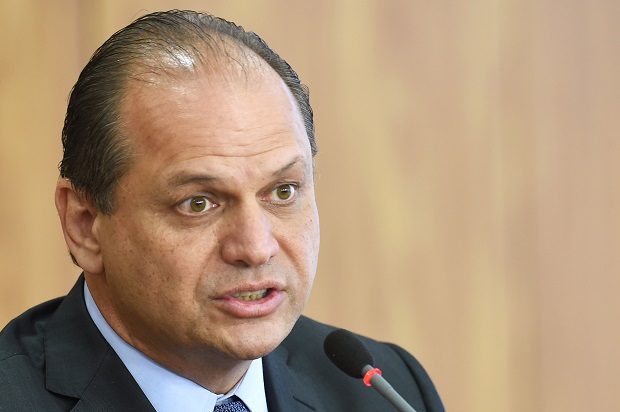Latest Photo Galleries
Brazilian Markets
17h38 Bovespa |
+0,02% | 124.196 |
16h43 Gold |
0,00% | 117 |
17h00 Dollar |
+0,15% | 5,2507 |
16h30 Euro |
+0,49% | 2,65250 |
ADVERTISING
Universal Access to Healthcare Should Be Reconsidered, Says Brazil's New Health Minister
05/17/2016 - 09h44
Advertising
CLÁUDIA COLLUCCI
FROM SÃO PAULO
Brazil's new Health minister, Ricardo Barros (PP - Paraná) said that in future the country will be unable to uphold all the rights guaranteed by the Constitution - such as universal access to healthcare - and that it will be necessary to reconsider them. Barros alleges insufficient financial resources.
Folha: The previous administration at the Ministry of Health said that there are only enough resources for the SAMU Emergency Service and the program Farmácia Popular [which offers reduced price medication] until August. So will there be cuts?
Ricardo Barros: It is true; the budget is very tight. The government has transferred R$7.2 billion (US$2.1 billion) to the Ministry of Health on a monthly basis, which has been spent exclusively. There are therefore restrictions on authorized procedures. My aim is to obtain enough resources to cover existing contractual obligations. This could represent, with outstanding payments from previous year, something in the region of R$14 billion (US$4 billion).
But will there be cuts?
I can't say now. What is certain is that we lack resources, but we will decide where the impact of that is to be felt once the economic team has told me that there is no capacity to provide what is laid out in the budget.
The health service currently has intensive care units and health centers closed, equipment that does not work. How do you propose to deal with this?
I'm going to create a team to address all poor use of resources. There is a lot of waste in the current setup, which isn't visible to people, and we're going to deal with it as a priority. But what is visible to citizens, and we're going to address this quickly, because nobody likes seeing their taxes misspent, is when they pass by a health center and see that it is closed, that there's been some failure of planning.
More than 1.3 million people left healthcare plans in the last year. This is going to put even more pressure on the SUS (the Unified Health System, Brazil's public health service).
The National Health Agency (ANS, the body responsible for regulating health insurance) needs to be more agile. The judicialization of health insurance has forced them to make readjustments to their prices far above the rate of inflation. Every time a court rules that a certain procedure has to be included in a plan, it increases the cost and this has to fall on the consumer. This is no good for anyone, as it makes the system more expensive and means that more people go without insurance. The more people that have insurance, the better, because it means they pay for their own care, which eases the financial pressure on the government.
Shouldn't it be just the opposite? Shouldn't we provide resources for a better SUS, given that we all pay taxes and have the right to healthcare?
All citizens pay for healthcare, just as all citizens pay for security. Nonetheless, the spending on private security is far higher than that on public security. Unfortunately, the government doesn't have the financial capacity to cover all these rights. We are not at a level of economic development which would allow the state to guarantee these rights.
So what should we do? Change the part of the Constitution that defines access to healthcare as a universal right?
When [then president José] Sarney approved the Constitution, what did he say? That Brazil would become ungovernable. Why? Because there are only rights, rather than duties. We aren't going to be able to maintain the level of rights guaranteed by the Constitution. At some point, we're going to have to reassess things, like the Greeks did when they cut pensions, as well as other countries that reassessed the obligations of the state because it no longer had the capacity to sustain them.
Translated by TOM GATEHOUSE
Read the article in the original language
| Evaristo Sá/AFP | ||
 |
||
| Brazil's new Health minister, Ricardo Barros (PP - Paraná) |
+Latest news in English



